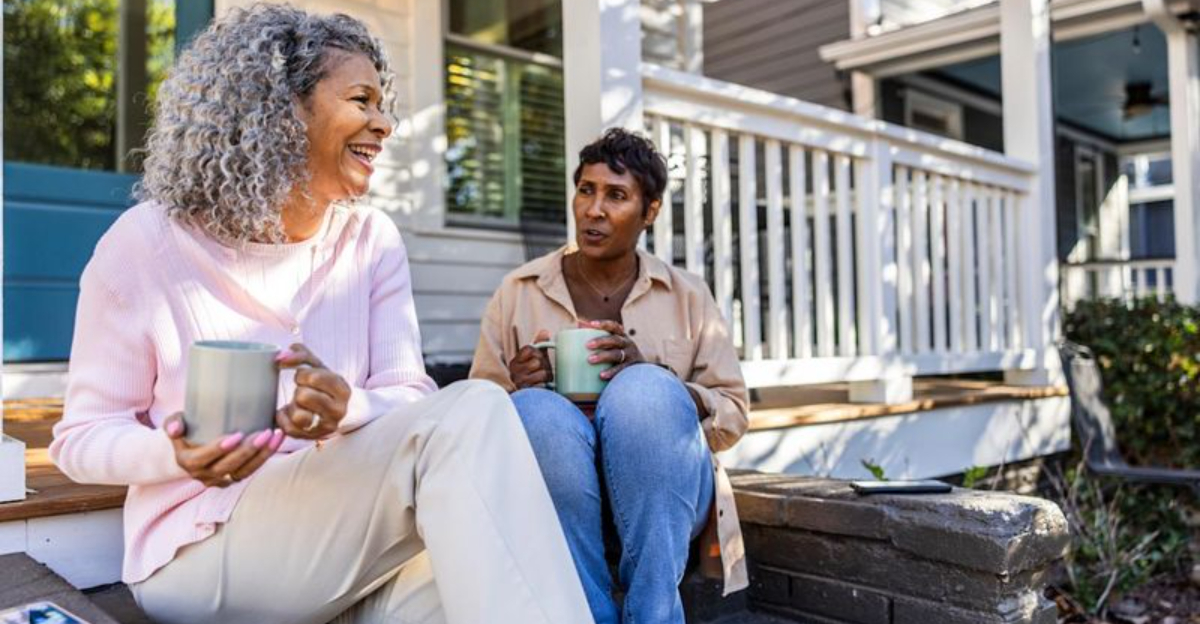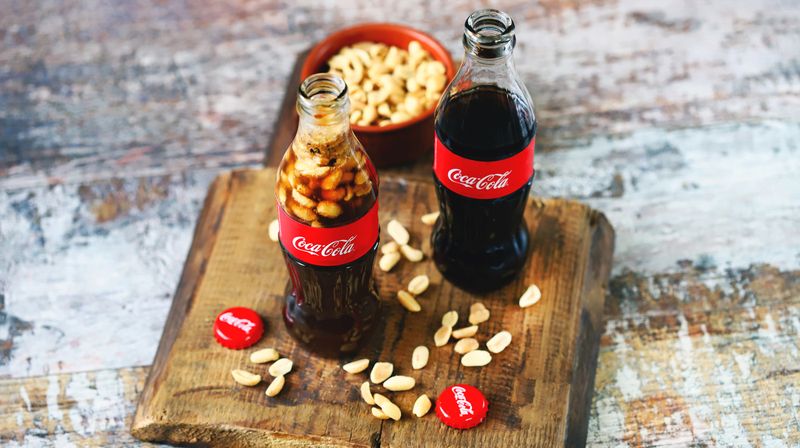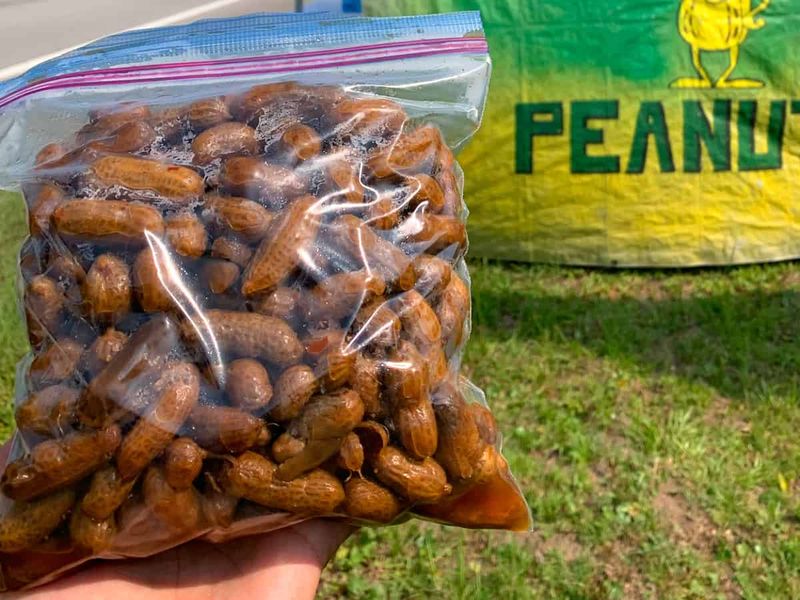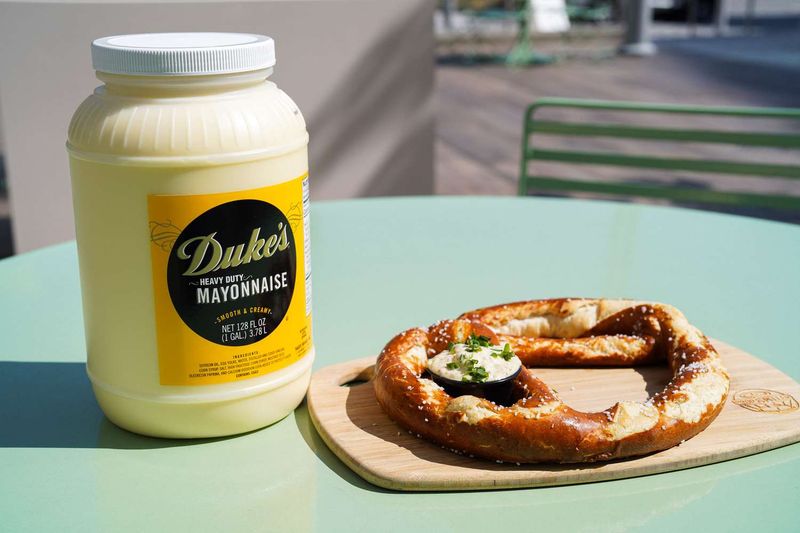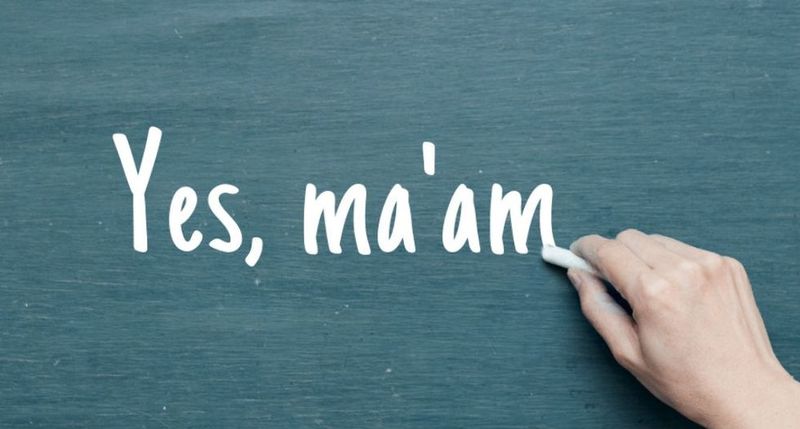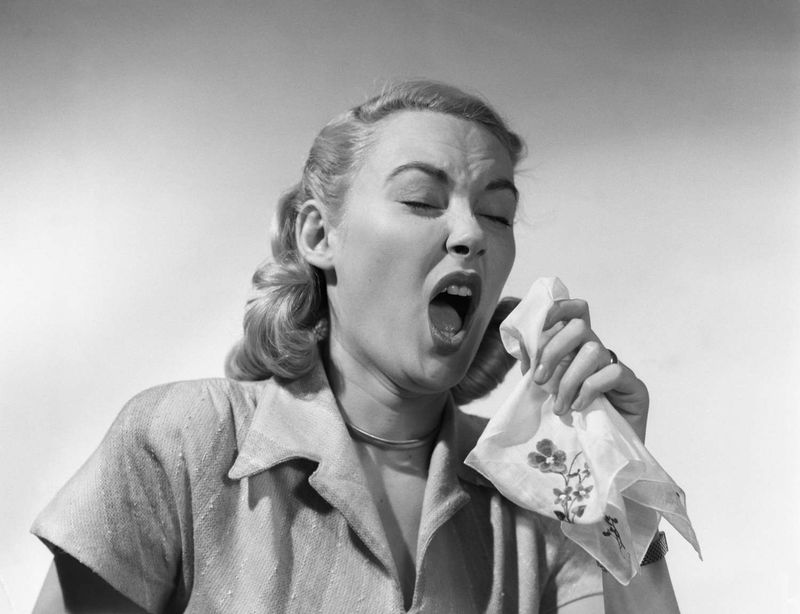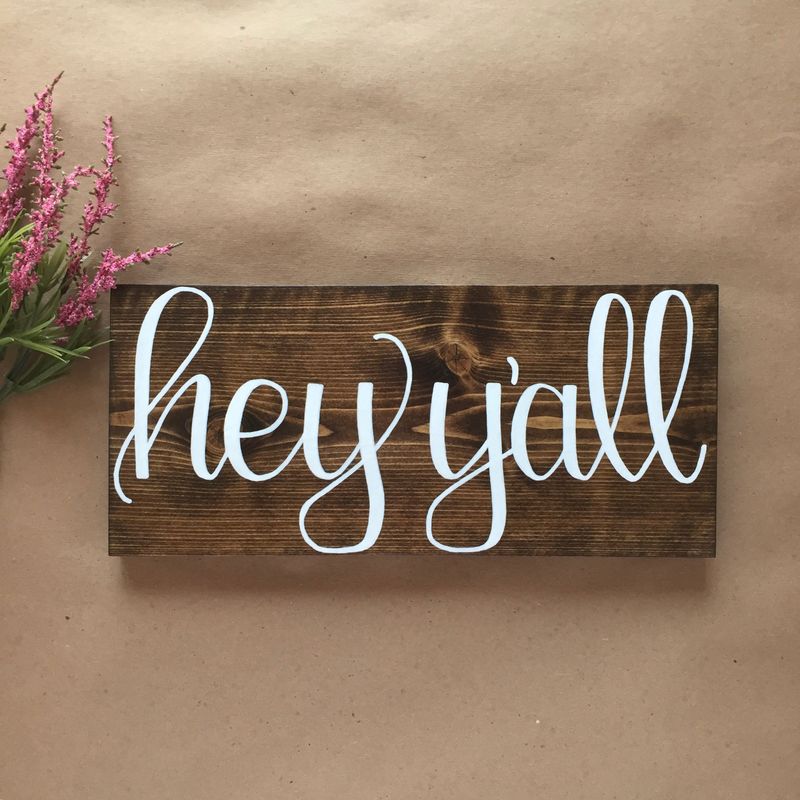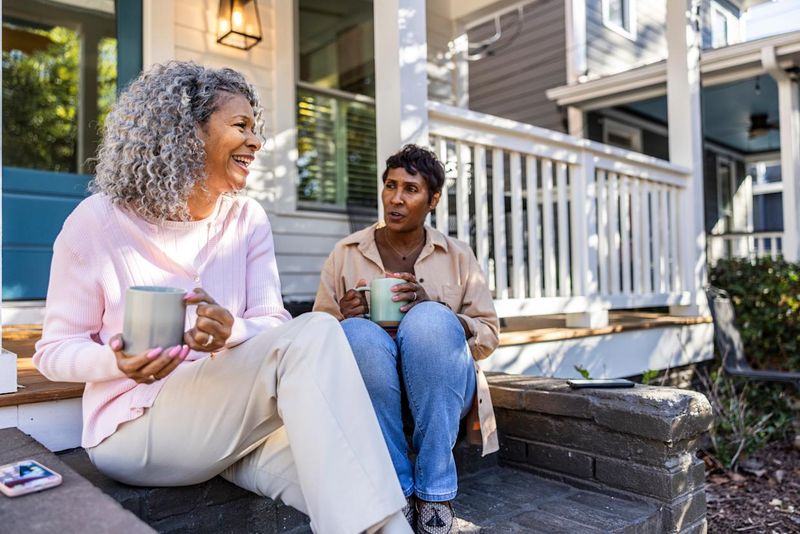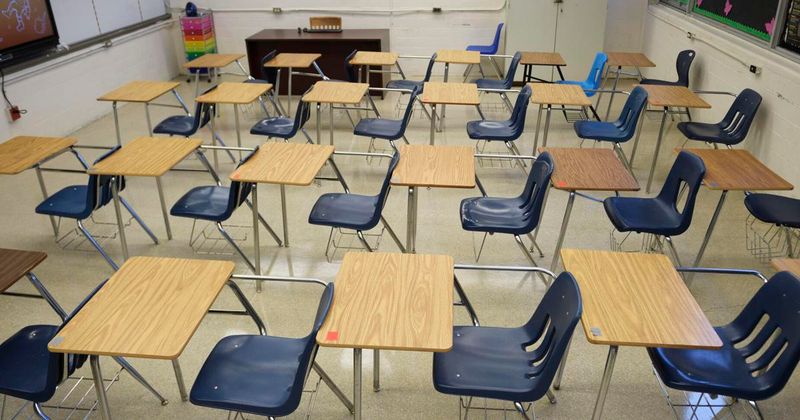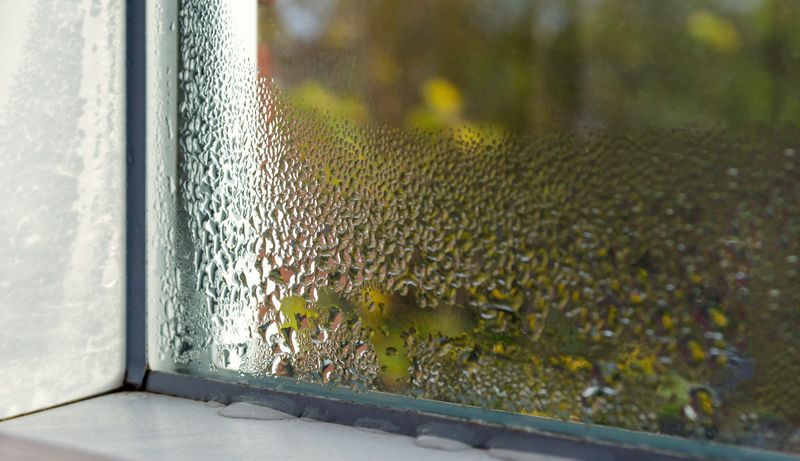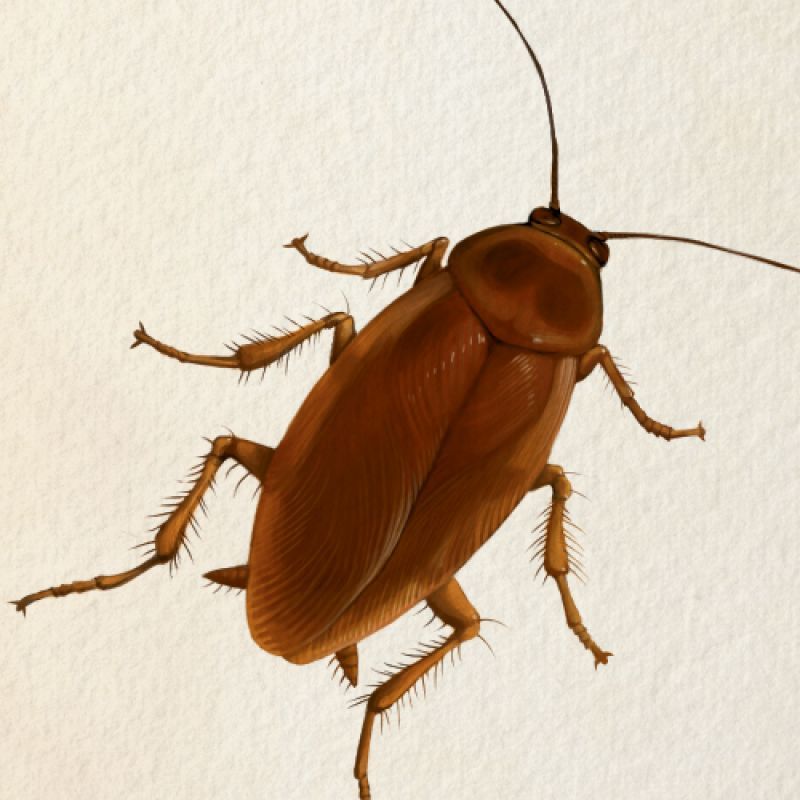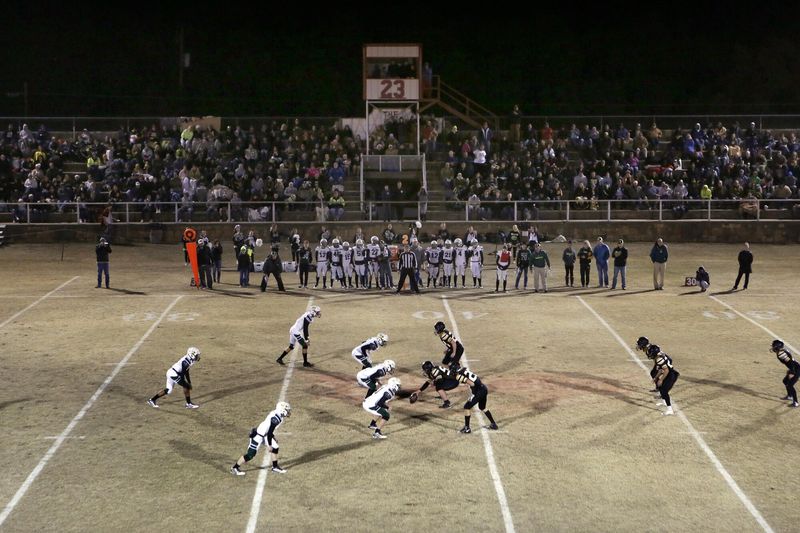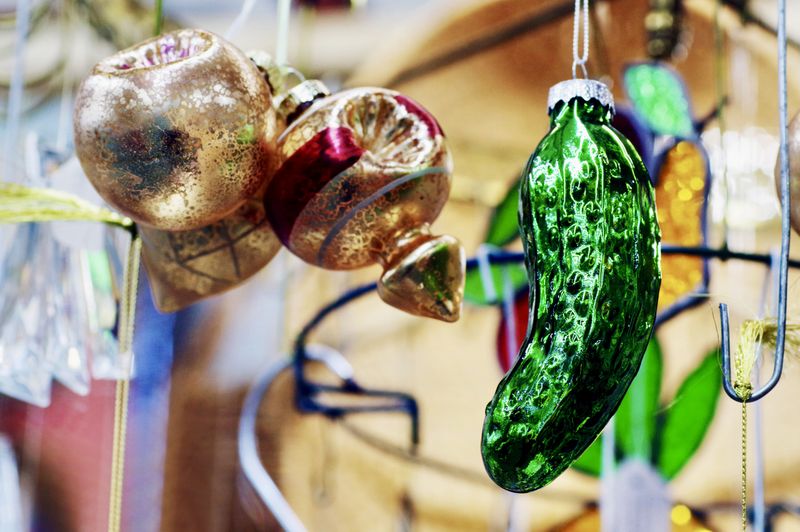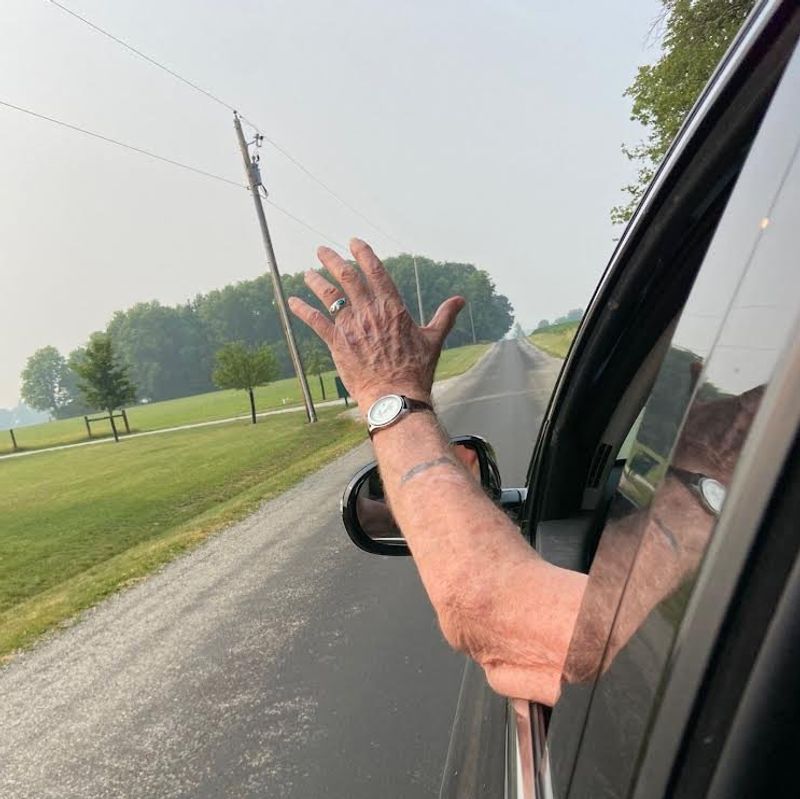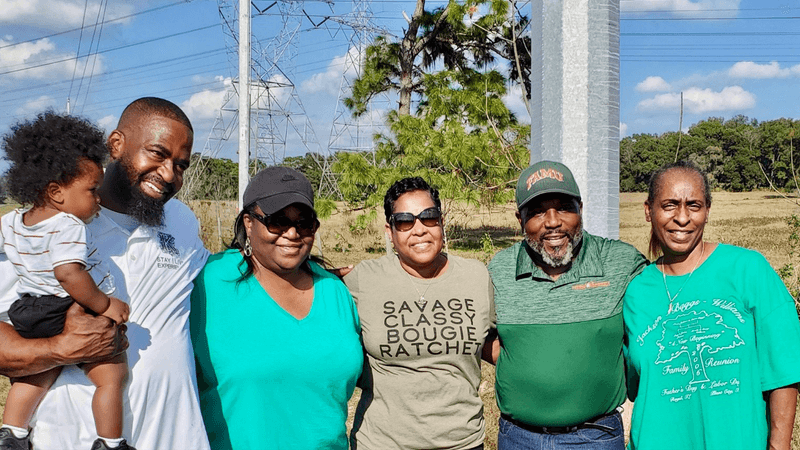The American South has its own special way of doing things. From unique food traditions to distinct social customs, Southerners have created a culture that often leaves visitors scratching their heads.
These everyday Southern habits might seem perfectly normal below the Mason-Dixon line, but they can appear downright strange to folks from other regions.
1. Sweet Tea as a Default Beverage
Order tea anywhere in the South and it arrives sweet enough to make your teeth hurt. Restaurants brew gallons daily, adding sugar while the tea is still hot to create that signature syrupy goodness.
Asking for unsweetened tea might earn you a confused look or gentle correction. To Southerners, tea without sugar isn’t really tea at all – it’s just warm brown water that’s missing its soul.
2. Putting Peanuts in Your Coke
Grab a bottle of Coke, pour in a packet of salted peanuts, and watch Northerners’ faces scrunch up in confusion. This peculiar snack combo dates back to hardworking farmers and mill workers who needed a quick one-handed refreshment during short breaks.
The salt from the peanuts cuts the sweetness while the cola softens the nuts just slightly. The resulting flavor? A magical mix that’s uniquely Southern.
3. Grits for Breakfast (or Anytime)
Creamy, buttery corn porridge that puzzles outsiders but forms the cornerstone of Southern breakfast tables. Served savory – never sweet – grits become the perfect canvas for cheese, shrimp, or a sunny-side-up egg.
Yankees might mistake them for cream of wheat or polenta, but true Southerners know the difference. Ask how someone takes their grits, and you’ll get a passionate answer that reveals their upbringing faster than their accent.
4. Boiled Peanuts
Driving down country roads, you’ll spot hand-painted signs advertising this peculiar snack. Raw peanuts simmered for hours in salty brine until soft and soggy – the complete opposite of the roasted nuts most Americans know.
The smell is distinctive and divisive. Locals pull over eagerly for these mushy treasures, buying them by the bagful from roadside stands. First-timers often spit out their initial taste, while Southerners slurp the briny goodness with nostalgic delight.
5. Mayonnaise on… Everything
Southern kitchens consider mayo a foundational food group. This creamy condiment appears in unexpected places – slathered on banana sandwiches, mixed into chocolate cake batter, or dolloped atop tomato slices as a summer delicacy.
Brand loyalty runs deep too. Duke’s mayonnaise inspires cult-like devotion across the region. Southerners will drive miles to find their preferred brand, believing the wrong mayo could ruin Grandma’s sacred potato salad recipe.
6. Calling Everyone “Ma’am” and “Sir”
Age doesn’t matter in Southern etiquette – respectful titles are universal. Children learn to respond with “yes ma’am” before they can tie their shoes, and grown men call teenage store clerks “sir” without a second thought.
This politeness habit runs so deep that Southerners accidentally “ma’am” their way through vacations in California or New York. The confused or sometimes offended reactions from non-Southerners (“Do I look that old?”) never quite make sense to those raised below the Mason-Dixon.
7. Holding the Door for Strangers
Walking through doors becomes a choreographed dance of courtesy in the South. People routinely wait, holding doors open for others who are still 30 feet away, creating that awkward half-jog situation for the approaching person.
Not participating in this ritual is practically a social crime. Southern mothers have been known to physically turn their children around to hold doors they’ve let close behind them. Even in a hurry, a proper Southerner waits those extra seconds.
8. Blessing Sneezes (Even from Strangers)
A sneeze in a Southern grocery store triggers a chorus of “Bless you!” from every aisle within earshot. This automatic response isn’t optional – it’s practically hardwired into Southern DNA.
The absence of a blessing feels strangely uncomfortable, like a conversation without a goodbye. Multiple sneezes receive multiple blessings, often with increasing enthusiasm. Some older folks even add “God” before the blessing, ensuring maximum spiritual coverage for your nasal explosion.
9. Saying “Hey Y’all” to Groups
The South’s greatest linguistic contribution solves the English language’s second-person plural problem with elegant efficiency. “Y’all” rolls off Southern tongues naturally, whether addressing two friends or an entire football stadium.
For larger groups, there’s even the magnificent “all y’all” – a redundancy that somehow makes perfect sense. Southerners who move away report accidentally “y’alling” in professional settings, immediately revealing their regional roots to everyone in the room.
10. Casual Porch Sitting with Neighbors
Porches aren’t just architectural features in the South – they’re social institutions. Entire evenings disappear as neighbors rock in creaking chairs, sipping drinks and exchanging gossip without formal invitations.
The slow rhythm of porch sitting feels foreign to fast-paced Northerners. Time stretches like taffy as ceiling fans spin lazily overhead. Simply driving by and seeing folks on their porch counts as an open invitation to pull over and join them.
11. School Getting Canceled for Potential Snow
The mere whisper of snowflakes sends Southern communities into delightful panic. Schools close at the first hint of winter precipitation – often before a single flake falls. Northern transplants watch in bewilderment as grocery stores empty of bread and milk.
The South’s snow-day enthusiasm makes perfect sense locally. With minimal snow removal equipment and drivers unpracticed on icy roads, it’s safer to declare a snow holiday. Besides, why miss a rare chance to build a three-inch snowman?
12. Fire Ants as a Daily Battle
Those innocent-looking dirt mounds in Southern yards hide tiny terrorists that have changed outdoor behavior across the region. Children learn early to scan the ground before sitting and to perform the frantic “fire ant dance” when accidentally standing on a mound.
Picnics involve strategic planning worthy of military operations. Southerners casually discuss ant-killing techniques like gardeners elsewhere discuss fertilizer. The distinctive burning sensation of their bites serves as a painful Southern initiation rite.
13. It’s Not the Heat, It’s the Humidity
This phrase escapes Southern lips with religious regularity from May through September. Stepping outside feels like walking into a wet blanket, with glasses fogging instantly and hair expanding dramatically upon contact with the soup-like air.
Air conditioning isn’t a luxury but survival equipment. Southerners develop a unique summer gait – moving slowly between air-conditioned spaces to minimize sweat production. The humidity turns simple tasks like checking mail into sweat-soaked adventures.
14. Giant Palmetto Bugs (a.k.a. Flying Roaches)
Southerners perform impressive linguistic gymnastics by renaming massive flying cockroaches as the more dignified “palmetto bugs.” These prehistoric-looking creatures appear suddenly on walls, causing even the most composed Southern belle to shriek.
Their terrifying ability to fly directly at human faces has spawned countless emergency evacuations of bathrooms and kitchens. Yet locals discuss these encounters with casual resignation, as if giant flying insects are simply an accepted tax for living in paradise.
15. Friday Night High School Football as a Religion
Entire towns empty as residents migrate to high school stadiums every Friday autumn night. The devotion transcends mere sport – it’s a community ritual where social standing, family traditions, and local pride converge under stadium lights.
Businesses close early on game days. Grandmothers who can’t name professional players can recite the high school quarterback’s stats from memory. The marching band, cheerleaders, and booster club prepare all week for these sacred gatherings where community bonds strengthen with each touchdown.
16. The Christmas Pickle Hidden in the Tree
Southern Christmas trees harbor a strange secret – a glass pickle ornament hidden deep among the branches. According to tradition, the first child to spot this peculiar decoration on Christmas morning receives an extra gift or year of good fortune.
Nobody quite knows why this became tradition. Some claim German heritage, though Germans themselves seem puzzled by it. Whatever its origins, the pickle hunt creates memorable holiday chaos as pajama-clad children carefully inspect ornaments while adults sip coffee and offer “warmer” or “colder” hints.
17. Ghost Stories Told Like They’re Fact
The South’s relationship with the supernatural blurs fiction and reality. Family gatherings inevitably include matter-of-fact discussions about Great-Aunt Mabel’s ghost who still rearranges kitchen cabinets or the Confederate soldier spotted on foggy mornings near the old battlefield.
Historic homes come with ghost stories included in the property value. Local tour guides share haunted histories with deadpan seriousness. Even skeptical Southerners speak respectfully about spiritual matters – just in case those stories about Grandpa’s watchful spirit turn out to be true.
18. Saying “I’m Fixin’ To” Instead of “I’m About To”
The Southern language includes this delightful verb tense that suggests immediate future action – though “immediate” remains subjective. “I’m fixin’ to head to the store” could mean leaving now or perhaps sometime before sunset.
This linguistic quirk confuses non-Southerners who take “fixing” literally and wonder what’s being repaired. Regional variations exist too – “fixing” becomes “finna” in some areas. The phrase’s flexible timing perfectly encapsulates the South’s relaxed approach to schedules.
19. Waving at Strangers While Driving
Rural Southern roads feature an unwritten rule: acknowledge every passing vehicle with at least a finger lifted from the steering wheel. This minimal greeting satisfies the social requirement without requiring full hand commitment.
The wave intensity increases based on familiarity – from the subtle index finger lift for strangers to the enthusiastic full-hand wave for neighbors. Failing to return a driving wave is seriously poor form. Visitors often ask, “Do you know all these people?” The answer: “No, but we’re all on the same road, aren’t we?”
20. Using “Aunt” and “Uncle” for Non-Relatives
Southern children grow up surrounded by a village of honorary relatives. Parents’ close friends automatically receive “Aunt” or “Uncle” status, regardless of biological connection. These titles represent respect and acknowledge the community’s role in raising children.
The practice extends to elderly neighbors and church members too. “Miss Mary” might become “Aunt Mary” once she’s babysat you a few times. This linguistic family-building creates a network where everyone feels responsible for local children’s wellbeing – a village raising children through intentional naming.
